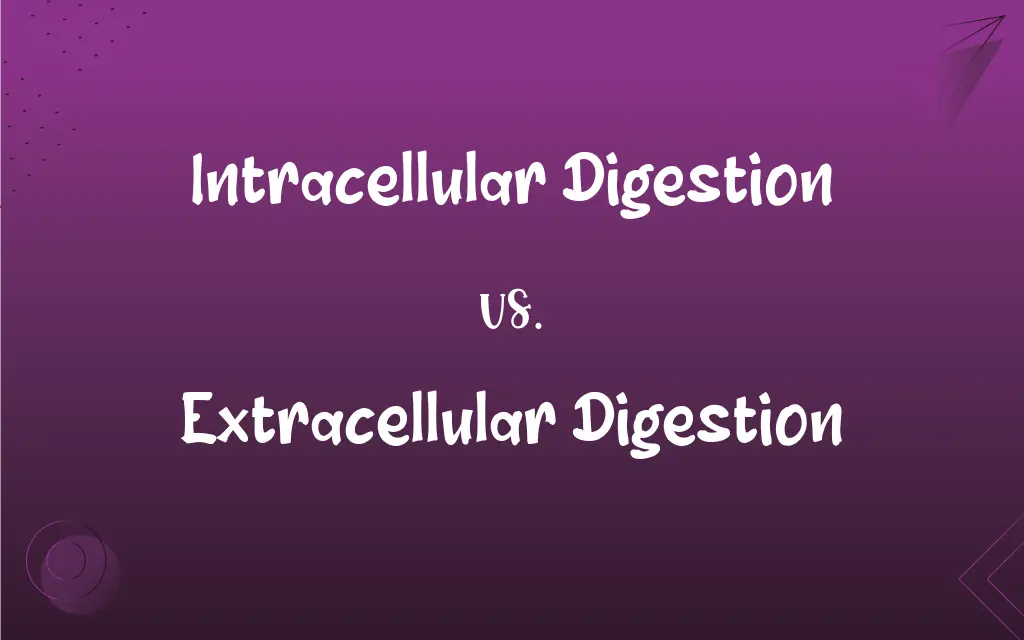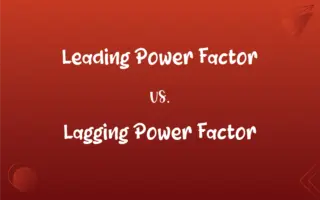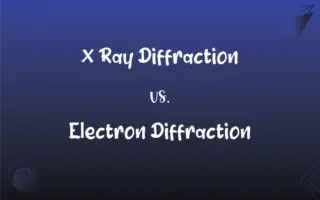Intracellular Digestion vs. Extracellular Digestion: What's the Difference?
Edited by Aimie Carlson || By Janet White || Published on February 9, 2024
Intracellular digestion happens within the cell, breaking down nutrients inside lysosomes, while extracellular digestion occurs outside cells, typically in digestive systems or external environments.

Key Differences
Intracellular digestion involves the breakdown of nutrients within the confines of a cell, using enzymes in organelles like lysosomes. Extracellular digestion, on the other hand, occurs outside cells, involving the secretion of digestive enzymes into a digestive tract or the external environment.
In intracellular digestion, food particles are engulfed by the cell and digested in a controlled, compartmentalized manner. Extracellular digestion allows organisms to process larger quantities of food by breaking it down externally before absorption.
Intracellular digestion is typical in simpler organisms like protozoa and some sponges, where digestion is a cellular-level process. Extracellular digestion is characteristic of more complex organisms, including most animals and fungi, where a specialized digestive system is present.
The process of intracellular digestion provides nutrients directly to the cell, ensuring immediate energy and building blocks. In contrast, extracellular digestion requires additional steps for nutrients to be absorbed into the body after breakdown.
Intracellular digestion is limited by the size of particles that can be phagocytosed by the cell, while extracellular digestion can handle larger food items, making it more efficient for complex organisms.
ADVERTISEMENT
Comparison Chart
Location
Within the cell
Outside the cell
Process
Nutrients are engulfed and broken down inside organelles
Digestive enzymes break down food externally
Typical in
Simpler organisms (e.g., protozoa)
Complex organisms (e.g., animals, fungi)
Nutrient Absorption
Directly provides nutrients to the cell
Requires absorption into the body post-digestion
Food Size Limitation
Limited to smaller particles
Can handle larger food items
ADVERTISEMENT
Intracellular Digestion and Extracellular Digestion Definitions
Intracellular Digestion
Intracellular digestion is essential for simpler organisms.
Certain types of algae perform intracellular digestion to sustain themselves.
Extracellular Digestion
It occurs in digestive systems or external environments.
Fungi release enzymes for extracellular digestion in their surroundings.
Intracellular Digestion
Intracellular digestion is a form of direct nutrient assimilation.
Microbes in aquatic environments often rely on intracellular digestion.
Extracellular Digestion
Extracellular digestion requires subsequent nutrient absorption.
In earthworms, soil nutrients are absorbed after extracellular digestion.
Intracellular Digestion
It is a cellular-level digestion process.
Intracellular digestion allows cells to utilize nutrients from small engulfed particles.
Extracellular Digestion
Extracellular digestion involves breaking down food outside cells.
Humans use extracellular digestion in their gastrointestinal tracts.
Intracellular Digestion
Intracellular digestion is the breakdown of nutrients within a cell.
Amoebas use intracellular digestion to process engulfed food particles.
Extracellular Digestion
Extracellular digestion allows digestion of larger food quantities.
Snakes use extracellular digestion to process their prey.
Intracellular Digestion
It occurs in specialized organelles like lysosomes.
In single-celled organisms, intracellular digestion happens in lysosomes.
Extracellular Digestion
It is typical in complex multicellular organisms.
Extracellular digestion in birds involves the breakdown of food in their stomachs.
FAQs
What organisms typically use intracellular digestion?
Intracellular digestion is common in simpler organisms like protozoa and sponges.
Where does intracellular digestion occur?
Intracellular digestion occurs within organelles like lysosomes inside the cell.
How does extracellular digestion happen?
Extracellular digestion involves secreting enzymes to break down food externally.
What is intracellular digestion?
Intracellular digestion is the breakdown of nutrients inside a cell.
Can intracellular digestion handle large food particles?
Intracellular digestion is limited to smaller particles that can be engulfed by the cell.
Is extracellular digestion efficient for large food items?
Yes, extracellular digestion can efficiently handle larger food items.
What advantages does extracellular digestion offer?
Extracellular digestion allows for processing larger amounts of food, crucial for complex organisms.
What defines extracellular digestion?
Extracellular digestion is the digestion of food outside cells, typically in a digestive system.
Which organisms rely on extracellular digestion?
Most complex organisms, including humans and fungi, rely on extracellular digestion.
Is intracellular digestion energy-efficient?
Intracellular digestion is energy-efficient for smaller organisms with lower energy needs.
How do cells absorb nutrients in intracellular digestion?
Nutrients are absorbed directly by the cell in intracellular digestion.
What role do lysosomes play in intracellular digestion?
Lysosomes contain enzymes that break down engulfed food in intracellular digestion.
What is the process of nutrient absorption in extracellular digestion?
In extracellular digestion, nutrients are absorbed into the body after external breakdown.
Do all cells have the capability for intracellular digestion?
Not all cells are capable of intracellular digestion; it varies based on the organism and cell type.
What is the significance of extracellular digestion in the human body?
Extracellular digestion in the human body is essential for breaking down food into absorbable nutrients.
Are digestive tracts always associated with extracellular digestion?
In complex organisms, digestive tracts are typically involved in extracellular digestion.
Can intracellular digestion occur in multicellular organisms?
Yes, some cells in multicellular organisms can perform intracellular digestion for specific functions.
How is extracellular digestion conducted in fungi?
Fungi secrete enzymes into their environment for extracellular digestion.
What is the environmental impact of extracellular digestion in fungi?
Fungi's extracellular digestion plays a crucial role in nutrient cycling and decomposition in ecosystems.
How do amoebas digest food?
Amoebas digest food through intracellular digestion by engulfing particles into food vacuoles.
About Author
Written by
Janet WhiteJanet White has been an esteemed writer and blogger for Difference Wiki. Holding a Master's degree in Science and Medical Journalism from the prestigious Boston University, she has consistently demonstrated her expertise and passion for her field. When she's not immersed in her work, Janet relishes her time exercising, delving into a good book, and cherishing moments with friends and family.
Edited by
Aimie CarlsonAimie Carlson, holding a master's degree in English literature, is a fervent English language enthusiast. She lends her writing talents to Difference Wiki, a prominent website that specializes in comparisons, offering readers insightful analyses that both captivate and inform.































































